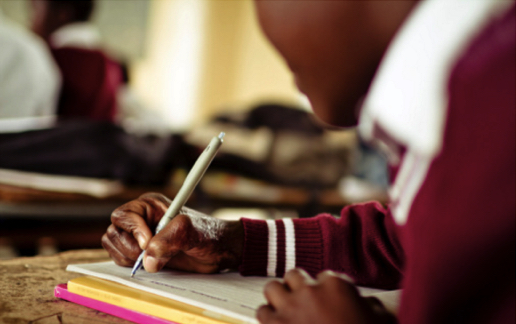By:Elsie Mutsaka
Adolescence in young girls is a transitional phase of their lives , and something worth celebrating. This stage is marked by physiological changes such as increased body size and the ability to reproduce as well as psychological changes, including the ability to think critically and sensitivity to the ‘new’ body image. However, for most girls in the rural areas of Zimbabwe and other African countries , this phase often brings challenges that push girls out of school and social activities, making the celebration short-lived.
One of the major causes is the beginning of the menstrual cycle which brings complications and leaves young girls dreading the few days of menstruation. The cramps that women suffer from and the fears of soiling garments are the major reasons why most people dread that time of the month, but in the Rural areas of Zimbabwe in Africa the number one reason why young girls dread their period is the inability to afford any sanitary pads to use.
Sanitary wear is generally unavailable in the rural areas, and when it is available, it is costly and, therefore, out of the reach of the majority living in poor areas. It is unimaginable to realize that in this day and age of development there are still young women who have no access to pads or tampons. The alternatives are old pieces of cloth, pieces of newspaper, tissue, maize cobs and cow dung. It is a depressing and unimaginable reality that some African girls face each month.
These alternatives have long term effects on the young girls’ lives. The use of cloth as a sanitary product is unsanitary because the cloth is not disinfected properly after use because of the lack of detergents and soap. This leads to infections and inflammation. The material of the cloth is sometimes uncomfortable for such sensitive areas for the body and does not lock up odors like a menstrual pad does. Tissues and newspaper do not absorb well and have chemicals that lead to infections that can cause cancer over a period of time just like the cloth does.
Maize cobs and cow dung are some of the extreme measures that have to be taken to avoid soiling clothes and to go on with daily chores by the young girls. The dung has a strong unbearable odor because it is the waste product of an animal. Using it is unhealthy and not only does it affect the health of young girls but their self-esteem. According to doctors in obstetrics and gynecology, some women suffer from gynecological diseases due to the improper use of sanitary products. Indeed, the World Health Organization claims that 63% of gynecological diseases are caused by using poor quality sanitary products as women are vulnerable to infection during this delicate period and weakened immunity can lead to more serious health threats.
Usually different sanitary napkins are found in the market, but these napkins are not affordable for rural poor women and girls. A survey of sanitary wear at a local supermarket revealed that the sanitary prices differed according to the brand. Most of the brands are imported and the cheapest brand can be valued at 1 US dollar but in an economy that is tough like that of Zimbabwe sanitary supplies become expensive and aren’t prioritized.
Traditionally, the issue of menstruation is a private matter that is not discussed openly. Many women prefer to hide the fact that they are having their period due to the stigma attached to it.
The stigma attached to menstruation is that it is shameful and that the blood contains harmful toxins, which in actuality is false. The lack of knowledge and understanding about menstruation in most traditional and conservative communities is the key source of stigma about what is a normal, natural biological process. There is also a culture of silence around menstruation leading to the menstrual process being viewed as a weakness of women. The subject is hardly ever discussed in families, resulting in it also not being an easy topic of discussion and engagement even in schools
The inaccessibility of menstrual products also results in embarrassment, anxiety and shame when girls and women stain their clothes, which is stigmatizing. The schoolgirls interviewed for the various studies generally described menstruation as a time of anxiety and discomfort especially at school, leading to low concentration in class. Apart from lacking concentration, the majority of girls save themselves from the possible embarrassment by missing school every month when they have their periods.
According to the Two Feet Project research, a girl absent from school for four days (in a month) loses 13 learning days, equivalent to two weeks of learning in every school term. In an academic year (nine months) a girl loses 39 learning days, equivalent to six weeks of learning time. A girl in primary school between grades 6 and 8 (three years) loses 18 learning weeks out of 108 weeks. Within the four years of high school a girl can lose 156 learning days equivalent to almost 24 weeks out of 144 weeks of learning in high school. It a great amount of time to be missing on school because of menstruation and the inability to afford sanitary products. It hinders the education of the less privileged African girl and in a world that is working toward empowering women it devalues the cause.
Having a menstrual cycle should not be shameful, a cause for health issues or hinder with a woman’s education and empowerment. Policy makers should prioritize, and clearly articulate, a policy position on the provision of sanitary ware for girls in schools, as a right for all girls that need them.
In addition, the school curriculum should include information on the female body with a view to demystify issues of women’s sexual and reproductive health for the benefit of all. This should also include pedagogical processes that can enable learners to develop a critical understanding of the body/subject, power and control dynamics in their society. These could be incorporated into activities at school and would break the silence around this tabooed area.
If contraceptives for males and females is accessible for free in all clinics and hospitals then the same should be for sanitary wear. The use of contraceptives is optional but sanitary is not . Sanitary should be made free to dignify the womanhood of the young underprivileged African girls who are growing up. Their empowerment begins with the recognition of this primary need in their lives and making sure it does not hinder with their education or cause them lifelong health implications.
Sources:
https://twofeetproject.wordpress.com/2013/09/10/how-lack-of-sanitary-towels-affects-education-for-girls/
https://emilymaiden.wordpress.com/2014/08/07/too-taboo-feminine-hygiene-in-zimbabwe/
https://www.newsday.co.zw/2014/07/16/sanitary-wear-poor-girls-resort-cow-dung/








Health and education these two main factor of everyone life’s and if you become something then must tack care of both things. Most of the education sectors are also tack care of your health like essay service uk institute they are giving you health insurance when joining the institute.
free dating sites for girls who like feet
cougar dating site free
free dating personals
find free online friendship dating
100% free online dating services
dating site free 100
free christian singles dating
meet me free dating site
tranny dating sites free
dating sites with free messaging
costco keto
keto diet food list pdf
keto marshmallows
uk gay dating sites https://gaychatus.com/
gay dating site gainesville fl https://freegaychatnew.com/
gay dating websites australia https://gaydatingzz.com/
gay black dating site https://gaychatgay.com/
gay dating in pittsburgh https://dating-gaym.com/
gay cop dating https://gay-singles-dating.com/
taimi gay dating https://gaydatingcanada.com/
gay teen dating forum bdsm https://gaydatinglosangeles.com/
dating gay jokes https://datinggayservices.com/
how write an essay https://essayghostwriter.com/
writing an introduction to an essay https://essaywritercentral.com/
reflective essay on writing https://essaytag.com/
write good essays https://essaypoints.com/
help writing college essays https://essaysnet.com/
what to write about in college essay https://onlinecasinos4me.com/
essay paper writing service https://online2casino.com/
online slots real money free bonus https://casinosonlinex.com/
free signup bonus no deposit casino https://casinoonlinet.com/
mobile casino https://onlinecasinoad.com/
writing an introduction to an essay https://multiessay.com/
writing a literature essay https://dollaressays.com/
writing a compare and contrast essay https://essaytodo.com/
family guy sex games https://sexgameszone.com/
sex games for girls https://winsexgames.com/
www sex games com https://sex4games.com/
wonder woman sex games https://cybersexgames.net/
mgm michigan online casino https://conline-casinos-hub.com/
keto vs paleo https://ketogendiet.net/
write an expository essay https://anenglishessay.com/
college essay writing https://howtowriteessaytips.com/
how to delete dating sites gay https://gayfade.com/
critical thinking scenarios with answers https://criticalthinkinginstitute.com/
common barriers to critical thinking https://uncriticalthinking.com/
outline format for essay https://tjvpn.net/
informative essay examples https://vpnshroud.com/
transitions for essay https://vpnsrank.com/